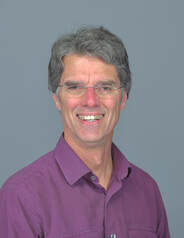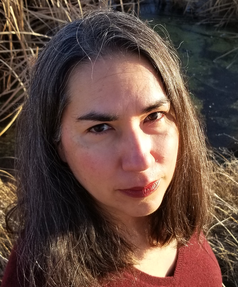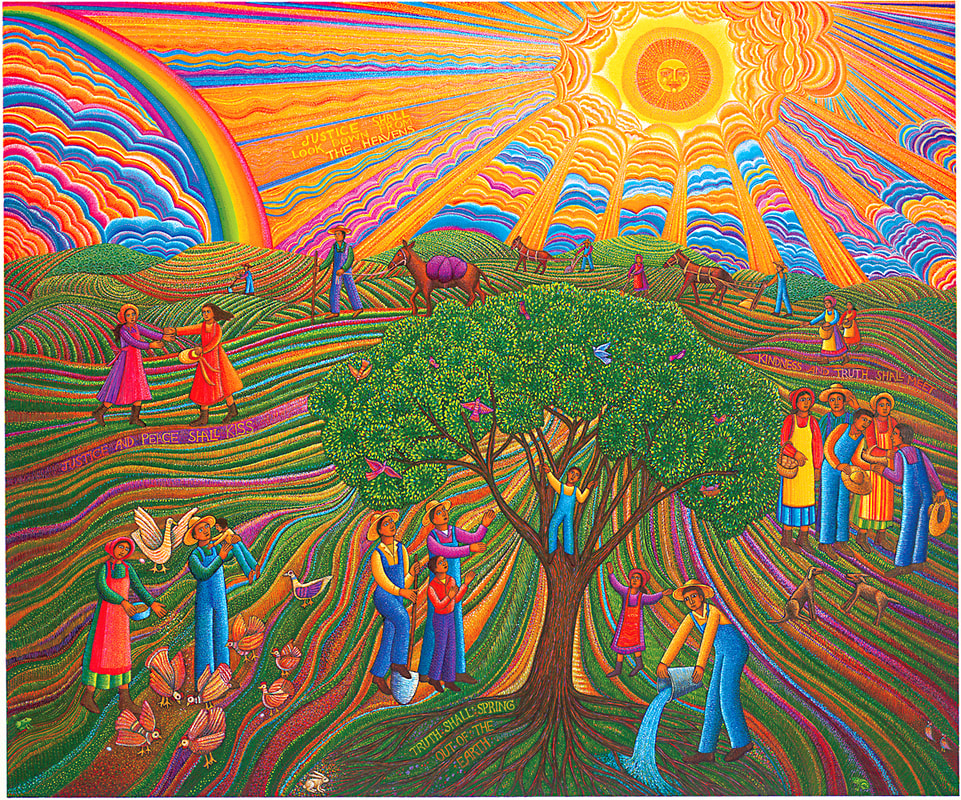|
By Nicole Taylor Morris Melanie L. Harris describes ecowomanism as, “the reflective and contemplative study of the eco wisdom that is theorized, constructed, and practiced by women of African descent. The discourse validates their lives, spiritual values, and activism as important epistemologies (i.e., sets of knowledge) in ecowomanism.”[1] Harris goes on to draw parallels between the ways that settler colonialism has and continues to harm and impact the Earth, just as it continues to harm and impact the lives of Black womxn, who often face the most severe forms of marginalization, globally, in her book Ecowomanism. The core of Womanism, which is often used as a theological framework, offers both a theoretical lens and practical applications for centering the voices and experiences of Black womxn and those most marginalized by oppressive systems.[2] It prioritizes actively listening to those voices and experiences toward repair and transformation, individually, communally, and systemically. Eco-womanism extends these principles beyond the experiences of marginalized human bodies and calls for a deep acknowledgment of the “voice” and experience of the Earth, of land and water, and living beings beyond humanity that have been subjected to the iterations of ecological violence due to white supremacy and capitalism. It also calls for a deep listening and attunement to the way that the Earth is an expert in its own healing and for a return to the decolonized, Afro-Indigenous ways of creating a symbiotic, not dominant, relationships amongst humans and the living beings and bodies that make up Earth. "Eco-womanism extends these principles beyond the experiences of marginalized human bodies and calls for a deep acknowledgment of the “voice” and experience of the Earth, of land and water, and living beings beyond humanity." Ecowomanism is rooted in justice and equity. It offers an insightful perspective and lens to Creation Justice by ultimately acknowledging that not only are the marginalized bodies of Black womxn and the Earth reflections and embodiments of God, but that there is a universal necessity to treat them as such in order to effectively move toward ecological restoration. This sentiment is reflected in Scripture from the Bible: “If my people, which are called by my name, shall humble themselves, and pray, and seek my face, and turn from their wicked ways; then will I hear from heaven, and will forgive their sin, and will heal their land” (2 Chronicles 7:14, KJV). We are called to be stewards to the land as reflections of God, who are “called by [God’s] name”. Our relationship to land is intended to be directly symbiotic and is also reflected in the ways that we treat one another; humility by transforming the systems of power we’ve created ultimately leads to a restorative forgiveness and “healing the land”--our voices must be heard and uplifted by one another, by God, and this will impact our ability to restore the environment. Ecowomanism prompts us to reimagine the present by returning to ancestral practices and by challenging the influences of white supremacy on our thoughts and actions in relation to ecology and society. It prompts us to reconsider statements that pose climate change and environmental disasters as “threats” to humanity, to an understanding that climate change is a direct result and symptom of the long-term destructive nature of settler colonialism, exploitative systems of oppression, and the consistent marginalization and neglect of the Earth and non-white bodies as “other”. Creation justice encourages us to consider how human systems and societies have actively harmed and are complicit in perpetuating harm to the environment and for us to approach restoration through healing and accountability, rather than defense and continued domination. Ecowomanism is at the core of what Creation Justice must be; a call for reparations, healing, and transformation of both society and its impacts on the health and well-being of the planet by deeply listening, honoring, and returning to practices that uplift those whose lives and humanity are most often disregarded and the Earth itself, as God. "Ecowomanism is at the core of what Creation Justice must be; a call for reparations, healing, and transformation.." Though the need for intervention is urgent and requires deep re-imagining of how best to approach societal and planetary healing on a global scale, many communities and societies have maintained and reclaimed ancestral and Afro-indigenous practices toward a Creation Justice of healing with the land. One embodiment of Creation Justice through the lens of Ecowomanism is the urban farm cooperative space, the Common Good Project located in the Neponset Tribal Territory of what is popularly called Dorchester, Massachusetts. The Common Good Project was founded and is led by Black women and women of color who face the daily challenges and impacts of systemic marginalization, neglect, and isolation of living in an under-resourced community of a heavily-resourced metropolitan area. This project is rooted in the concept that liberation from these structures can be found by learning and intentionally returning to an Afro-Indigenous symbiotic relationship with the Earth and land as a space that provides oxygen, food, and the physiological benefits of ecological engagement in right relationship with the Earth, but also a space that must be nurtured, honored, and heard. Not only does this project and similar community-based offerings provide an avenue forward for improving the well-being and seeking justice at a community-level, but also they provide insight to the ways that we can begin to actualize Creation Justice for planetary well-being. Efforts like these continually reemphasize the equity of humanity and ecology and the ways that they are interwoven through a lens of Creation Justice and Ecowomanism; they are tangible pathways forward for both survival and healing. 1. Melanie L. Harris (2016) Ecowomanism: Black Women, Religion, and the Environment, The Black Scholar, 46:3, 27-39, DOI: 10.1080/00064246.2016.1188354 2. Alice Walker (2011). In Search of Our Mothers' Gardens: Womanist Prose. Open Road Integrated Media.
4 Comments
By Dr. Steven Bouma-Prediger Revelation 22:1-2 Rivers and trees. The Bible begins and ends with rivers and trees. Genesis 1-2 and Revelation 21-22. Rivers and trees bookend the Bible. Why is this striking fact not more well known among followers of Jesus? And what might this text teach us about creation justice? In this mind-bending vision of God’s good future (Revelation 21:1 to 22:7) John the Seer speaks about the river of the water of life, cascading from the throne of God and the Lamb, right smack-dab through the middle of a heaven-on-earth city. Rekindling the vision of Ezekiel 47, John reminds us that wherever this sacred river flows, every living creature flourishes. On each side of the river is the tree of life, with twelve kinds of fruit, one for each month, sustenance all year long. No more hunger or famine. No more worry about if or when you will get the next meal. "...wherever this sacred river flows, every living creature flourishes." The leaves of this magnificent tree are for the healing of the nations--the soothing, restorative reconciliation of all ethnic groups and peoples. And this healing includes all creation. Respect for rights and care for needs—human and nonhuman alike. In short, the leaves of this tree foster God’s good future of shalom: justice, love, the flourishing of all things. Can we even begin to imagine what this would be like? No more trees felled to make battering rams to lay violent siege to medieval cities. No more trees cut to make sailing masts for colonial slave ships. No more trees pulped to make paper propaganda to fuel the fires of ethnic cleansing and human hate. In sharp contrast, this tree brings healing and wholeness to all. Medicinal uses of biochemical compounds extracted from leaves or bark. Beautiful wood used to make melodious guitars and sturdy garden hoes. Generous forest canopies that provide us shade and offer homes to warblers and bromeliads and tree frogs. Sinuous streams and life-filled lakes that provide habitats for crabs and trout and loons. The leaves of this tree are for the healing of the nations and the good of all creation. An essential aspect of our faith is hope. And an integral feature of hope is imagining a good future. May this rarely read but powerful text infuse our imaginations with an earthy and earthly vision of all things as God intends them to be. Shalom. The reign of God. Creation justice.
By Sarah Augustine Each morning my son and I watch the sunrise. I was taught to do this by elders – to give thanks at the beginning of the day, to acknowledge the gift and miracle of life every morning. My ancestors practiced reverence in this way, and in turn I share this with my son. The spiritual tradition I have been taught explains that God’s nature is revealed in creation. To walk with God is to acknowledge God’s plan revealed in creation. Romans 1:19-20 explains, For what can be known about God is plain to them, because God has shown it to them. For his invisible attributes, namely, his eternal power and divine nature, have been clearly perceived, ever since the creation of the world, in the things that have been made. So they are without excuse. God’s eternal power and divine nature are clearly perceived. I take this to mean that God’s nature is made clear in creation. With each sunrise, God reveals God’s faithfulness, blessing the earth with warmth and light, the ongoing process of creation. The life support systems we depend on – soil, air and water – work together in a precious balance that demonstrates interdependence. These life support systems express the boundaries of reality that we must live within. For human beings to live, we need clean air, water and soils. Indigenous Peoples, across our numerous spiritual traditions, acknowledge we are embedded in creation, interdependent with it, not separate from it. In the cosmology I understand, this is reality. "These life support systems express the boundaries of reality that we must live within." 'In the dominant culture, I have learned a different view of reality. In this alternate view, my self-interest justifies participation in disabling the systems of life. I am told that if I work hard, I deserve all that I earn. I can earn money and accumulate land and assets, which belong to me and which I can discharge as I see fit. My success is marked by the accumulation of wealth. I can pass down property, money, and investments to my descendants and they are entitled to these assets, which they are free to discharge as they see fit. Those fortunate enough to hold investments passively participate in the destruction of life-support systems, since investment portfolios are often dominated by extractive industries. Extraction of oil, natural gas, minerals and metals discharge carbon into the air, changing the climate. Extractive industry pollutes waters human beings are dependent upon to live. Toxic chemicals used in a variety of industries, including agribusiness and mining, destroy soils humans are dependent upon to grow food. All of this destruction to vital life support systems is done in the name of progress. In addition to the destruction to the life-support systems of earth, entitled self-interest further results in racial inequity named by the Black Lives Matter movement. The delusion we choose to live in was created to serve the lucky at the expense of the oppressed. The stubborn belief that we are entitled to financial security – that the destruction of vital life support systems is worth the cost – is killing the world. Individuals feel entitled to status bestowed by unjust systems passed down from one generation to the next, just as we feel entitled to wealth accumulation justified as financial security. Hard work, thrift, investing, whatever the cost, are considered to be wise. We are rewarded in the dominant culture for pursuing self-interest. Romans 1: 21-22 goes on to say, For although they knew God, they neither glorified him as God nor gave thanks to him, but their thinking became futile and their foolish hearts were darkened. Although they claimed to be wise, they became fools. Meanwhile, Indigenous Peoples around the globe striving to live in balance with systems of life – the boundaries of reality – are considered to be poor, ignorant and in need of rescue by international development. Indigenous water protectors, from the tar sands to the Amazon, are dismissed as radical or unrealistic. What the dominant culture imagines is reality – competition for scarce resources, financial security that destroys ecological systems humans depend on for survival – is destructive and delusional. We have to reimagine, remember reality. "We have to reimagine, remember reality." The belief that we (the privileged) have worked hard for all we have, that we deserve all we have – regardless of the inequity that advantages some over others, regardless of the cost to life support systems and generations yet unborn – is killing the world. The belief that our assumptions are grounded in truth rather than a brittle and unrealistic ideology, is killing the world. Are we, the privileged, ready to remake our values, our ideologies, our political and social systems, our understanding of God – so that they are consistent with the rules of the universe – the reality that we are dependent upon systems of life? Psalm 90:14 reads satisfy us in the morning with your steadfast love, that we may sing for joy and be glad all our days. I sincerely hope we are ready to be satisfied each morning, so that our descendants may sing for joy.
Translation and reflection by Dr. Ellen F. Davis Psalm 85 This is a psalm, an ancient poem-prayer, for a moment of profound threat, such as the one in which I write. At this moment, Hurricane Ida is landing in Louisiana, the second storm in a year to make modern history in that state with its brutality. Psalm 85 speaks to this immediate situation and likewise to the long-term global tragedy of which Ida is yet another piece of unwelcome evidence. Our land, God’s earth – “your land” (v. 2) refers to both – is in desperate need of God’s restorative work. We, God’s people, must hear and enact God’s word of shalom, which is not “peace” in any simple sense, but rather a comprehensive condition of wellbeing, one that binds together people, land, and God in a covenanted unity.
Many psalms appeal to our visual imagination, but none offers a more vivid picture than this one. Covenant-loyalty, truth, righteousness, and shalom are here embodied attributes – divine and human, heavenly and earthly – all actively engaged in the work of restorative living. All must be fully enacted on earth, and enabled from heaven, if we are to turn firmly and forever away from the “stupidity” (v. 9) that has made us humans a deadly threat to God’s earth and all its inhabitants. John August Swanson offers one picture of restorative living, with people, animals, plants, earth, and sky bound together in the dynamic interaction that the psalmists call tsedeq, “righteousness” (vv. 12, 14). Tsedeq is an essentially relational term – not just playing by the rules, but living creatively in order to further the wellbeing, the shalom, of our fellow creatures, human and nonhuman. In contemporary English, “sustainability” might be the word that best captures the psalmist’s intent, to denote the kind of creaturely living that invites God to enter into our world and walk with us the difficult path ahead. Ellen F. Davis is Amos Ragan Kearns Distinguished Professor of Bible and Practical Theology at Duke Divinity School. By Karyn Bigelow & Avery Davis Lamb “Creation justice” may be a new term for some, but it is a concept deeply grounded in Christian theology and practice. It captures both the depth of our interconnectedness with everything and the necessity to partner with God in the healing and restoration of all -- God’s Shalom. Using the term "creation" instead of "eco," “nature” or "environment" demonstrates that we are intimately part of the created order, and constantly working alongside our Creator to redeem and sustain it. When we say Creation, we mean all Creation -- justice for God’s people and God’s planet. Seeing the world as Creation is a radical act that counters modern notions of nature as either a resource to be exploited or as something entirely separate from humanity. What we read in Genesis is that Creation is a gift from God that humans are existentially linked with and tasked with serving. In Genesis 2:7, God creates the first human (Adam in Hebrew) from the soil (Adamah in Hebrew) and breath. Adam, that first prototypical human, is made from the soil! Even the name reflects intimacy with the dirt: Adam from the Adamah. We learn in these opening chapters of the Bible that Creation is not something “out there,” separate from our human life, but the very ground of our human life! We are in creation and creation is in us. Later on in that same chapter, God instructs Adam to “till and keep” the Garden of Eden (Genesis 2:15). In an agrarian society, this instruction means much more than to maximize yields. Ellen Davis offers a compelling translation of this verse, writing in Scripture, Culture, and Agriculture that God is instructing Adam to “work it and serve it, observe it and preserve it.” Creation is a gift which we are to lovingly and skillfully care for. The work of this care necessitates the fight for justice among God’s people and planet. Seeing the world as Creation is a radical act that counters modern notions of nature as either a resource to be exploited or as something entirely separate from humanity. The Genesis creation story is only the opening chapter -- the “creation” -- of creation justice. Using the term "justice" rather than "care" indicates our commitment to not only heal, tend, and restore God's creation, but to ensure the protection of God's planet and God's people from exploitation, as well as provision for the remediation of the damage that has been done. The call to creation justice is a call to protect, restore, and rightly share God’s Creation. We see these as the three “E’s” of creation justice: Ecology, Eschatology, and Economy. By protecting God’s creation, we revere God’s ecology -- the interactions between creatures that make up this beautiful world. We are facing a catastrophic decline in the wellbeing of creaturely life. This era of ecological devastation, which some refer to as the “Anthropocene,” is an insult to the Creator and the gift of Creation. When we protect God’s creatures and places, we protect that which God loves. That’s creation justice. By restoring God’s creation, we create Heaven on Earth. Eschatology is the field of theology concerned with where humanity and Creation is headed. In scriptures, we read that the trajectory of creation is not upward, moving away from Creation. Rather, we read about a Creator who is constantly coming into closer intimacy with creation, until, as it says in Revelation 21:3, “the home of God is among mortals. He will dwell with them; they will be his peoples, and God himself will be with them.” In the eschaton, all Creation is restored and comes to rest in God. Yet, eschatology also makes a claim on us in the present. Jesus calls us to build the Kingdom of Heaven on earth (Matthew 6:10). By restoring creation -- God’s people and planet -- we are creating Heaven on Earth. That’s creation justice. By restoring God’s creation, we create Heaven on Earth. By rightly sharing creation, we participate in God’s economy. Economy is the way we order our collective household. The word comes from the Greek root “oikos” which means family or household. God’s economy is not the economy of the dollar. God’s economy is the collective flourishing of all things. This year, the theme of the global Season of Creation celebration is “A home for all? Renewing the Oikos of God.” God’s economy is one in which creation is shared equitably with all creation. That’s creation justice. This Season of Creation, we invite you to join us in the journey of creation justice. Over the next four weeks, we’ll hear four different theologians address the question, “What is Creation Justice?” You can find their reflections above. Karyn Bigelow and Avery Davis Lamb are Co-Executive Directors of Creation Justice Ministries.
|
About this BlogThis blog shares the activities of Creation Justice Ministries. We educate and equip Christians to protect, restore, and rightly share God's creation. Archives
July 2024
Categories
All
|
Photo from johndillon77





 RSS Feed
RSS Feed